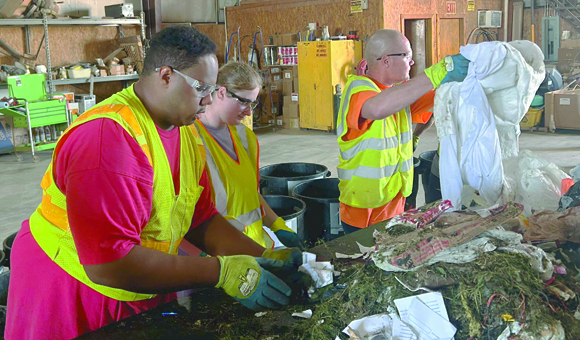ROBERT PIERCE
• Leader & Times
Kansas is initiating the process to conduct a statewide characterization study, and Seward County was recently chosen as a host site for sampling and sorting of waste received.
The county was chosen based on factors such as:
• Geographic distribution
• Landfill diversity in terms of tonnage received, urban/rural service area
• Detailed record keeping to facilitate proper load selection
• Integrated solid waste programs available in landfill service area
Waste types to be characterized through sampling and sorting include residential, industrial, commercial and institutional. Waste sorting activities will take place this week at the Seward County Landfill.
Hannah Sperfslage, staff professional for SCS Engineers Environmental Consultants and Contractors, said the Kansas Department of Health and Environment worked with facilities across the state to get a geographic and facility host size representation to select which landfills would be part of the study.
“It’s based on the geographic diversity and also the size of the facility,” she said.
Landfill Supervisor Brock Theiner explained what being part of the study means for the county.
“It’s going to mean the breakdown of the waste that comes into our landfill into the separate categories of what could be recycled, if there was recycling out in this area and what we could pull out of the waste stream to recycle to save air space,” he said.
KDHE workers have been at the Seward County Landfill this week, and following their time at the local facility, they will spend two other weeks at other landfills in the state. Sperfslage said sorting for the study should be done the week of Sept. 23.
“We will do some data analysis and come up with a composition of the state and also a composition of waste by facility, and we will be putting that into a report where we will do a recoverability analysis to determine what could have been diverted through composting or recycling and ultimately hand that over to the state to look over, keep for future reference, data collection and any diversion or policy changes,” she said.








